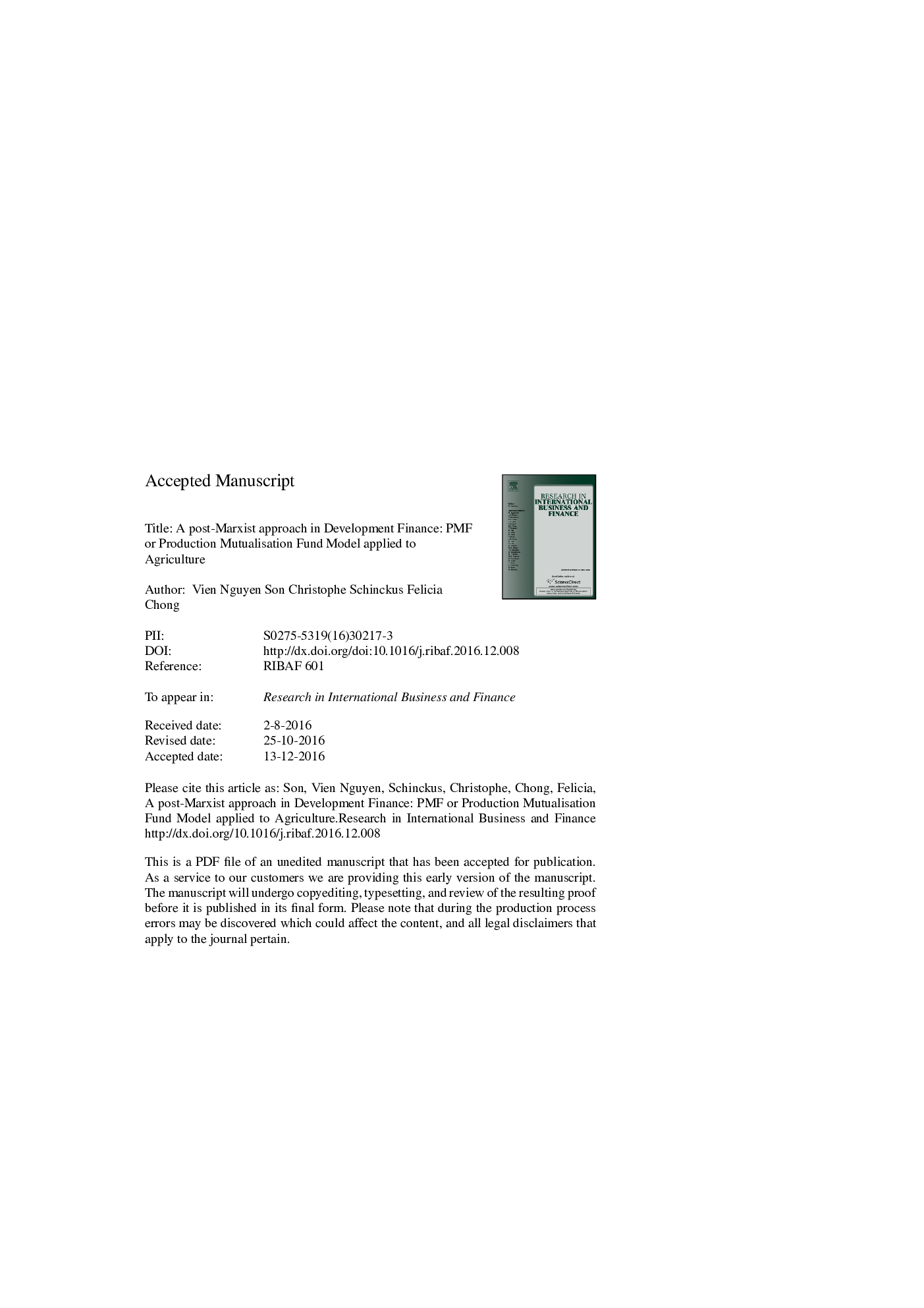| Article ID | Journal | Published Year | Pages | File Type |
|---|---|---|---|---|
| 5107406 | Research in International Business and Finance | 2017 | 30 Pages |
Abstract
Development finance offers several solutions to support economic activity in poor areas usually based on a lending system. Such a perspective is mainly founded on the idea that the payment of a high interest rate by small farmers and small producers can compensate their non-sustainability or non-bankability. Instead of focusing on individual producers, sustainability which is a macro-concept would more likely be obtained at the level of the overall value chain. Agriculture's potential to develop rural areas depends on the scale of production and its impact on regional consumption and economy altogether. This article presents a way of improving these fundamental aspects through the development of a post-Marxist scheme transforming agriculture into a growth engine even for emerging countries. With this purpose, we introduce a new development model called PMF (Production Mutualisation Fund) whose aim is to mutualize the production and post-production chains and, therefore, extend the notion of bankability to the whole value chain. Such initiative suggests an alternative way of thinking development finance. It is no more about finding a way to lend money to the non-sustainable smallholders\producers. It is about financing viable industrial service companies which will provide all necessary services to secure an optimized production, traceability and distribution of processed agricultural produce to end-distributors. This goes beyond the mere agricultural sphere and applies to many production sectors increasingly challenged by a forever accelerated deployment of new technologies: it combines the implementation of production services with infrastructure services (water management, logistics, power production and supply, etc.) to support a production economy using the producer's income as the key variable to optimize. In other words, such a model can contribute to the development of least to most industrialized economies.
Related Topics
Social Sciences and Humanities
Business, Management and Accounting
Business and International Management
Authors
Vien Nguyen Son, Christophe Schinckus, Felicia Chong,
